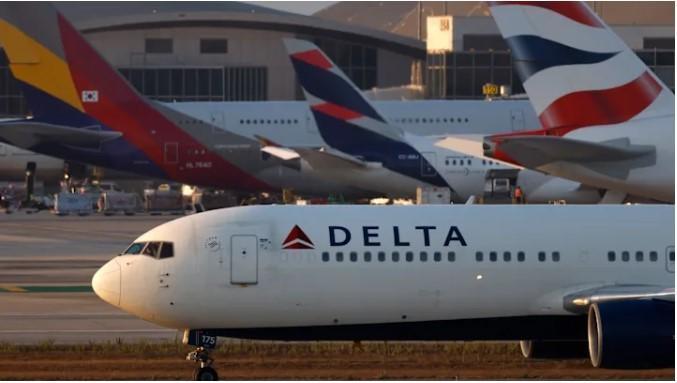
Female American Delta Pilot Caught Drunk Before Stockholm Flight
On a recent evening, a shocking incident unfolded at Stockholm Arlanda Airport, highlighting the gravity of aviation safety and the importance of strict alcohol policies in the industry. A female American Delta pilot was arrested after failing a mandatory pre-flight alcohol breathalyzer test, resulting in the cancellation of Flight 205 to New York. This incident serves as a stark reminder of the zero-tolerance approach towards intoxicated flying personnel and the significant consequences that follow.
According to reports, the pilot, who was due to operate the transatlantic flight, was found to be over the legal limit for alcohol consumption. The pilot, whose identity has not been disclosed, was taken into custody by airport authorities and subsequently faced charges for aviation safety offenses. The incident led to the cancellation of the flight, leaving hundreds of passengers stranded and seeking alternative travel arrangements.
Under EU regulations, passengers are entitled to compensation in the event of flight cancellations caused by the airline’s fault. In this instance, Delta is expected to provide compensation to affected passengers, which will likely result in significant financial losses for the carrier. Moreover, the incident has caused operational disruptions, as the airline has had to re-route passengers and reschedule flights to accommodate the cancellations.
The incident has sparked concerns about the ongoing safety issues in the aviation industry, particularly with regards to pilot well-being and the risks associated with substance abuse. While it is understandable that pilots, like any other professionals, may occasionally face personal struggles, the consequences of a single incident can be devastating.
The International Air Transport Association (IATA) has emphasized the importance of maintaining a safe and healthy working environment for pilots. In a statement, the organization noted, “Pilots are responsible for the safety of their passengers and crew, and as such, they must be fit for duty at all times. Any behavior that compromises this responsibility is unacceptable.”
Delta, like other major airlines, has strict policies in place to prevent and detect substance abuse among its pilots. The airline’s code of conduct explicitly prohibits the use of alcohol and drugs while on duty, and pilots are required to undergo regular fitness-for-duty evaluations. However, the incident serves as a reminder that even with these measures in place, human error can still occur.
The aviation industry has made significant strides in recent years to improve safety standards and reduce the risk of accidents. However, incidents like the one at Stockholm Arlanda Airport underscore the ongoing need for vigilance and a commitment to maintaining the highest levels of safety.
In the wake of the incident, the European Aviation Safety Agency (EASA) has issued a statement reaffirming the importance of adhering to strict alcohol policies in aviation. The agency noted, “The safety of passengers and crew is the top priority, and any behavior that compromises this safety is unacceptable.”
As the investigation into the incident continues, it is clear that the aviation industry will face significant challenges in balancing the needs of pilots with the need to maintain the highest levels of safety. In the meantime, passengers and the public can take comfort in knowing that our safety is the top priority, and that measures are in place to prevent such incidents from occurring.
Source: https://www.breezyscroll.com/world/the-us/delta-drunk-pilot-stockholm-aviation-safety/






